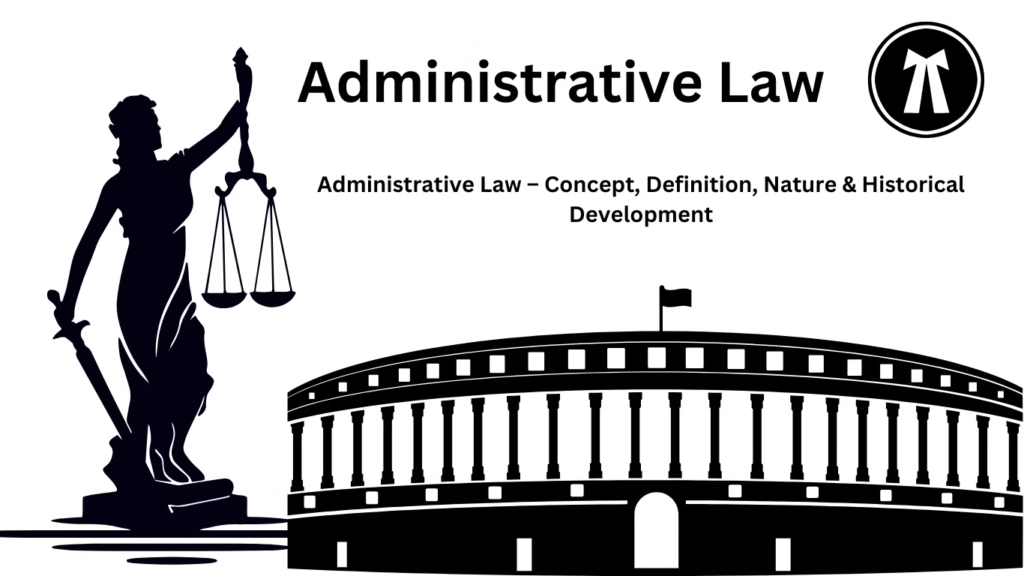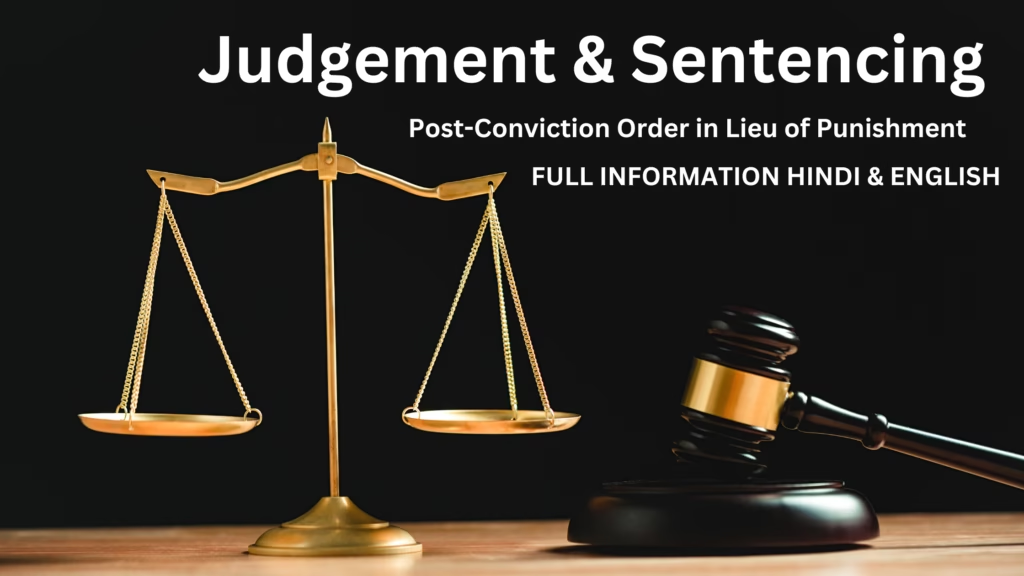1. प्राकृतिक विधि संप्रदाय (Natural Law School)
अर्थ:
प्राकृतिक विधि संप्रदाय यह मानता है कि विधि का आधार नैतिकता, न्याय और तर्क है। यह मानवीय तर्क और प्रकृति से उत्पन्न होती है।
🔹 मुख्य विचारक: अरस्तू (Aristotle), सिसरो (Cicero), संत थॉमस एक्विनास (St. Thomas Aquinas), जॉन लॉक (John Locke), रूसो (Rousseau)।
🔹 विशेषताएँ:
- नैतिक मूल्यों और न्याय पर आधारित होती है।
- यह मनुष्य-निर्मित कानूनों से स्वतंत्र होती है।
- मानवाधिकार और संवैधानिक कानून की नींव रखती है।
🔹 आलोचना:
- बहुत अस्पष्ट और जटिल है।
- समय के अनुसार बदलती रहती है, इसलिए सार्वभौमिक रूप से लागू नहीं हो सकती।

2. विश्लेषणात्मक संप्रदाय (Analytical School)
अर्थ:
यह संप्रदाय विधि का अध्ययन तथ्यात्मक दृष्टिकोण से करता है, नैतिकता या न्याय को इसमें शामिल नहीं किया जाता।
🔹 मुख्य सिद्धांत:
(क) अनिवार्यतावादी सिद्धांत (Imperative Theory of Law) – ऑस्टिन
- विधि सार्वभौम (Sovereign) का आदेश होती है।
- इसे दंड (Sanction) के द्वारा लागू किया जाता है।
- इसका नैतिकता से कोई संबंध नहीं है।
🔹 आलोचना:
- यह सामाजिक पहलुओं की अनदेखी करता है।
- लोकतांत्रिक व्यवस्था में पूरी तरह से लागू नहीं हो सकता।
(ख) शुद्ध विधि सिद्धांत (Pure Theory of Law) – हंस केल्सन
- विधि नियमों की एक प्रणाली है।
- इसमें नैतिकता, राजनीति, या समाज का कोई हस्तक्षेप नहीं होता।
- विधि की मूल इकाई (Grundnorm) ही सभी विधियों का आधार होती है।
🔹 आलोचना:
- बहुत अधिक कठोर और सैद्धांतिक है।
- यह मानवीय समाज और इसकी आवश्यकताओं को नजरअंदाज करता है।

3. ऐतिहासिक संप्रदाय (Historical School)
अर्थ:
यह संप्रदाय मानता है कि विधि धीरे-धीरे विकसित होती है, और इसका आधार परंपराएँ, रीति-रिवाज और सामाजिक प्रथाएँ होती हैं।
🔹 मुख्य विचारक: फ्रीडरिक कार्ल वॉन सैविनी (Friedrich Karl von Savigny), सर हेनरी मेन (Sir Henry Maine)।
🔹 विशेषताएँ:
- विधि भाषा और परंपराओं की तरह विकसित होती है।
- समाज की रीति-रिवाज और परंपराएँ विधि के मुख्य स्रोत होते हैं।
🔹 आलोचना:
- यह विधायिका और न्यायिक निर्णयों की भूमिका को अनदेखा करता है।
- आकस्मिक विधिक परिवर्तनों को समझाने में असफल रहता है।
4. समाजशास्त्रीय संप्रदाय (Sociological School)
अर्थ:
यह संप्रदाय विधि को समाज और उसकी आवश्यकताओं के संदर्भ में देखता है।
🔹 मुख्य विचारक: ऑगस्ट कॉम्टे (Auguste Comte), रोस्को पाउंड (Roscoe Pound), दुगुइट (Duguit)।
🔹 विशेषताएँ:
- विधि एक सामाजिक संस्था है।
- सामाजिक कल्याण और न्याय पर ध्यान देती है।
- विधि को समाज की आवश्यकताओं और प्रगति के अनुसार बदलना चाहिए।
🔹 आलोचना:
- इसमें स्पष्ट विधिक सिद्धांतों की कमी है।
- यह बहुत अधिक व्यापक और अस्पष्ट है।
5. यथार्थवादी संप्रदाय (Realist School)
अर्थ:
यह संप्रदाय मानता है कि वास्तव में विधि वही होती है जो न्यायालयों में लागू की जाती है।
🔹 मुख्य विचारक: ओलिवर वेंडेल होम्स (Oliver Wendell Holmes), जेरोम फ्रैंक (Jerome Frank), कार्ल ल्लेवेलिन (Karl Llewellyn)।
🔹 विशेषताएँ:
- विधि का वास्तविक स्वरूप न्यायालयों के निर्णयों से निर्धारित होता है।
- विधि का व्यावहारिक (practical) दृष्टिकोण अपनाया जाता है।
🔹 आलोचना:
- यह विधि को बहुत अधिक न्यायाधीशों पर निर्भर बना देता है।
- विधायिका और कानूनी सिद्धांतों की भूमिका को कम कर देता है।

6. प्राचीन “धर्म” की अवधारणा (The Ancient Concept of “Dharma”)
अर्थ:
प्राचीन भारत में विधि का आधार धर्म था, जो कर्तव्य, नैतिकता और न्याय से संबंधित था।
🔹 हिंदू विधि के स्रोत:
- श्रुति (वेद) – ईश्वरीय ज्ञान।
- स्मृति (मनुस्मृति, याज्ञवल्क्य स्मृति) – प्राचीन ग्रंथ।
- आचार (रीति-रिवाज) – समाज द्वारा स्वीकृत परंपराएँ।
🔹 धर्म की विशेषताएँ:
- धर्म एक कर्तव्य था, अधिकार नहीं।
- विधि, नैतिकता और धर्म में कोई अंतर नहीं था।
- विधि न्याय और नैतिक जीवन पर आधारित थी।
🔹 आलोचना:
- यह धर्म और जाति व्यवस्था पर निर्भर था।
- आधुनिक धर्मनिरपेक्ष विधिक प्रणाली में यह पूरी तरह उपयुक्त नहीं है।
7. नारीवादी न्यायशास्त्र (Feminist Jurisprudence)
अर्थ:
यह संप्रदाय विधि को नारीवादी दृष्टिकोण से देखता है और मानता है कि परंपरागत विधियाँ पुरुषों के पक्ष में बनाई गई हैं।
🔹 मुख्य विचारक: कैथरीन मैकिनॉन (Catherine MacKinnon), कैरल स्मार्ट (Carol Smart)।
🔹 विशेषताएँ:
- लैंगिक समानता और महिला अधिकारों पर केंद्रित।
- पितृसत्तात्मक विधिक संरचनाओं को चुनौती देता है।
- घरेलू हिंसा, कार्यस्थल भेदभाव, और प्रजनन अधिकारों जैसे मुद्दों की चर्चा करता है।
🔹 आलोचना:
- इसे कभी-कभी अत्यधिक नारीवादी माना जाता है।
- कुछ लोगों का तर्क है कि विधि को निष्पक्ष (neutral) होना चाहिए।
निष्कर्ष (Conclusion)
न्यायशास्त्र के विभिन्न संप्रदाय विधि के स्वरूप, उद्देश्य और प्रभाव को अलग-अलग दृष्टिकोण से समझाते हैं। हर संप्रदाय विधि के एक महत्वपूर्ण पहलू को उजागर करता है और उनके अध्ययन से हमें विधिक प्रणाली को व्यापक रूप से समझने में मदद मिलती है।
1. Natural Law School (प्राकृतिक विधि संप्रदाय)
Meaning:
Natural Law is based on morality, ethics, and justice. It believes that law is derived from nature and human reason.
🔹 Key Thinkers: Aristotle, Cicero, St. Thomas Aquinas, John Locke, Rousseau.
🔹 Features:
- Based on moral values and justice.
- Exists independent of human-made laws.
- Forms the foundation for human rights and constitutional law.
🔹 Criticism:
- Too abstract and vague.
- Changes with time and cannot be applied universally.

2. Analytical School (विश्लेषणात्मक संप्रदाय)
Meaning:
This school studies law as it is (positivism), without considering morality or justice.
🔹 Key Theories:
(a) Imperative Theory of Law (Austin)
- Law is the command of the sovereign.
- Enforced by sanctions (punishment).
- No connection with morality.
🔹 Criticism:
- Does not consider social aspects of law.
- Not applicable to democratic systems.
(b) Pure Theory of Law (Hans Kelsen)
- Law is a system of norms.
- No role of morality, politics, or society in law.
- Grundnorm (Basic Norm) is the foundation of all laws.
🔹 Criticism:
- Too rigid and abstract.
- Law cannot exist without social, moral, or political influences.

3. Historical School (ऐतिहासिक संप्रदाय)
Meaning:
Law is developed gradually over time, influenced by customs, traditions, and social practices.
🔹 Key Thinkers: Friedrich Karl von Savigny, Sir Henry Maine.
🔹 Features:
- Law evolves like language and customs.
- Customs and traditions are the main sources of law.
🔹 Criticism:
- Does not consider the role of legislation and judicial decisions.
- Cannot explain sudden legal changes.
4. Sociological School (समाजशास्त्रीय संप्रदाय)
Meaning:
Law should be studied in relation to society and its needs.
🔹 Key Thinkers: Auguste Comte, Roscoe Pound, Duguit.
🔹 Features:
- Law is a social institution.
- Focuses on social welfare and justice.
- Law should adapt to social needs and progress.
🔹 Criticism:
- Lacks definite legal principles.
- Too broad and unclear.
5. Realist School (यथार्थवादी संप्रदाय)
Meaning:
This school believes that law is what judges do in courts.
🔹 Key Thinkers: Oliver Wendell Holmes, Jerome Frank, Karl Llewellyn.
🔹 Features:
- Focuses on practical application of law.
- Law is based on court decisions and judicial behavior.
🔹 Criticism:
- Makes law too judge-dependent.
- Ignores the role of legislation and legal principles.

6. The Ancient Concept of “Dharma” (प्राचीन “धर्म” की अवधारणा)
Meaning:
In ancient India, law was based on Dharma (duty, righteousness, justice).
🔹 Sources of Hindu Law:
- Shruti (Vedas) – Divine knowledge.
- Smriti (Manu Smriti, Yajnavalkya Smriti) – Ancient texts.
- Customs (Achara) – Traditions followed by society.
🔹 Features of Dharma:
- Dharma was a duty rather than a right.
- No distinction between law, morality, and religion.
- Law was based on justice and ethical living.
🔹 Criticism:
- Dependent on religion and caste system.
- Not suitable for modern secular legal systems.
7. Feminist Jurisprudence (नारीवादी विधिशास्त्र)
Meaning:
This school examines law from a feminist perspective, arguing that laws have traditionally favored men.
🔹 Key Thinkers: Catherine MacKinnon, Carol Smart.
🔹 Features:
- Focuses on gender equality and women’s rights.
- Challenges patriarchal legal structures.
- Examines issues like domestic violence, workplace discrimination, and reproductive rights.
🔹 Criticism:
- Sometimes seen as too focused on gender.
- Some argue that law should be neutral rather than feminist.
Conclusion
Different schools of jurisprudence provide different perspectives on law:
- Natural Law focuses on morality.
- Analytical School focuses on state-made laws.
- Historical School sees law as an evolutionary process.
- Sociological School emphasizes social needs.
- Realist School believes that law is what judges decide.
- Ancient Concept of Dharma was based on duty and righteousness.
- Feminist Jurisprudence highlights gender biases in law.
Each school helps us understand the nature, function, and purpose of law in different ways.

